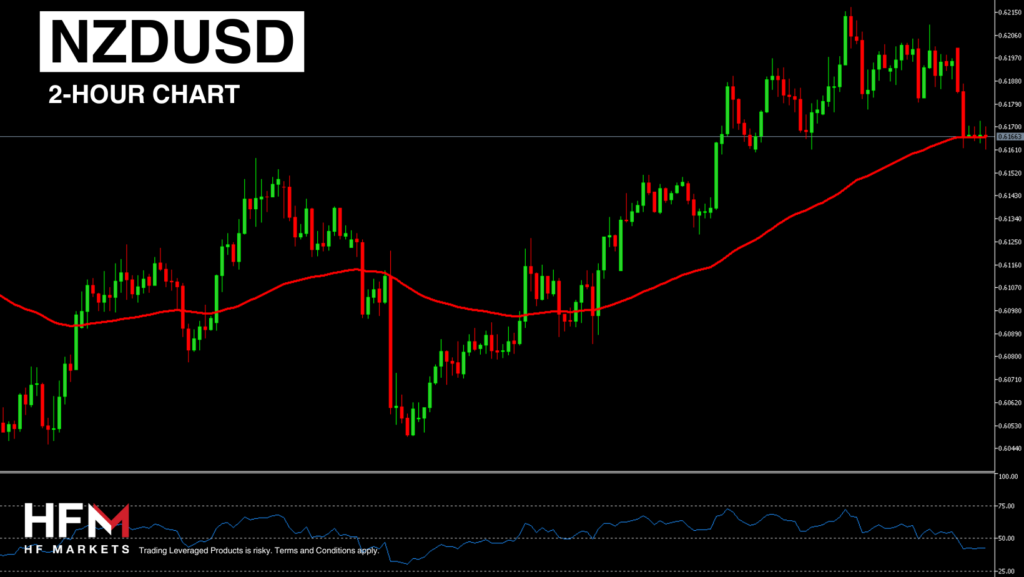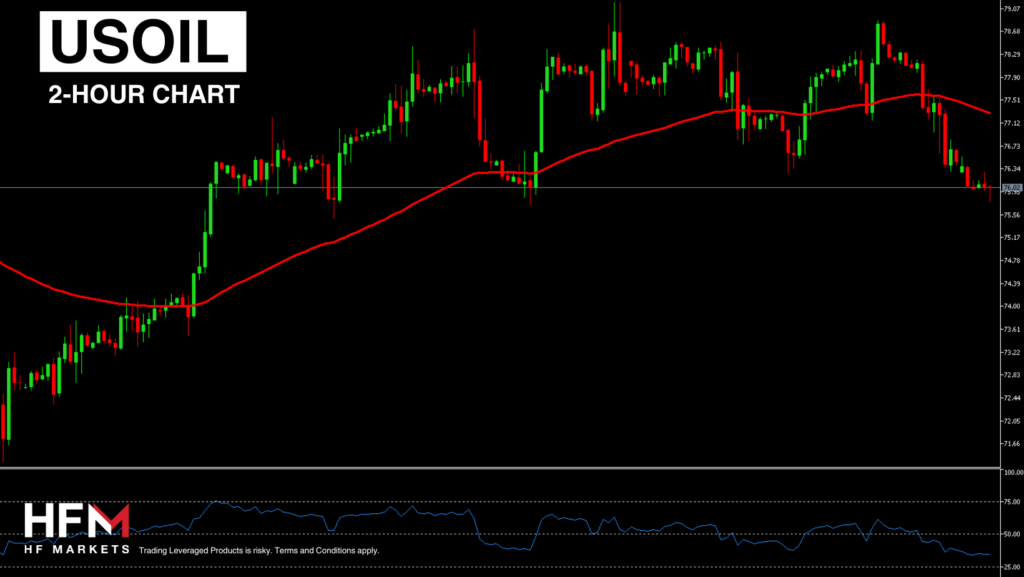- The New Zealand Dollar witnesses a quick decline as we approach this week’s central bank decision and press conference. The NZD falls 0.50% within the first three hours of trading.
- Oil drops to the lowest price since February 15th after investors price in a delayed interest rate cut.
- US Oil declines after the Energy Information Administration (EIA) recorded an increase in oil reserves of 3.5 million barrels. The higher level of supply can continue to pressure quotes if demand falls.
- The US Dollar Index trades 0.12% lower during the Asian Session and so far, continues to maintain a “sell signal”.
NZDUSD – The New Zealand Dollar Declines Against All Currencies!
The day’s worst performing currency is the New Zealand Dollar which is declining against the whole currency market. Throughout the month of February, the NZD has been one of the best performing currencies, but as trading started this morning, a sizable decline was apparent. The NZDUSD is trading 0.50% lower, but the New Zealand Dollar is witnessing the strongest decline against the Pound. Against the Pound, the NZD fell 0.60% within this morning’s Asian Session.
The economy over the past 12 months within the country has seen a decline in GDP growth and Retail Sales while the Unemployment Rate has risen for four consecutive months. At the start of 2023, New Zealand had an unemployment rate of 3.4% while the latest reading was 4.00%. Economists are easily able to see how the restrictive monetary policy and weaker Chinese Market are weighing on the economy. Simultaneously, inflation remains stickier than elsewhere and considerably higher than elsewhere. These factors have resulted in economists potentially considering a more cautious tone towards the NZD.
Throughout the week, investors will mainly be keen to see what the Central Bank has to say regarding economic frailty and how this will affect monetary policy. For the current meeting, investors believe the policy will remain unchanged. However, if the economy continues to deteriorate in upcoming months, the RBNZ is likely to consider a cut sooner rather than later.
In terms of technical analysis, the price is currently “neutral” but close to a sell signal. The sell signal has not yet materialized as the exchange rate has seen significant gains over the past 2 weeks. However, if the price falls below 0.61618, the exchange rate will renew “sell” signals. Ideally investors would also like to see strength in the Dollar and the US Dollar Index. This way, the exchange rate is not experiencing two declining currencies.
USOIL – Oil Declines on Fears of a Global Slowdown!
The commodity saw a strong and sudden decline on Friday measuring 2.25% which lasted throughout the whole day. The price this morning is again witnessing a lower price as investors continue to struggle to maintain demand while the global economy is in stagnation, supply remains high and tensions in the middle east have not continued to escalate.
On Friday, the Fed’s board member Mr Waller said the Central Bank might refrain from lowering interest rates for at least several more months. Investors fear that maintaining a tight policy could cause a slowdown in economic growth. Consequently, this could limit oil demand in one of the leading consumers. Some economists have also voiced concern that other central banks in weaker economies may also follow the Fed even though their economies are underperforming.
Technical analysis, even though not a price driving factor, can assist with understanding the price condition. After the strong decline on Friday, the price is trading below most Moving Averages such as the 75-Bar-EMA and below 50.00 on the RSI. In addition to this, most timeframes show a downward crossover and the price trades below the Volume Weighted Average Price. However, Oil prices are trading at a support level which can be seen on February 21st, 15th and 12th. Therefore, to maintain a “sell” signal, the commodity will need to see fundamental factors pressure quotes further. This is likely if US economic data is lower and US inflation is higher. The US will release their Core PCE Price Index on Thursday and Germany will release their Consumer Price Index the same day.
Michalis Efthymiou
Market Analyst
Disclaimer: This material is provided as a general marketing communication for information purposes only and does not constitute an independent investment research. Nothing in this communication contains, or should be considered as containing, an investment advice or an investment recommendation or a solicitation for the purpose of buying or selling of any financial instrument. All information provided is gathered from reputable sources and any information containing an indication of past performance is not a guarantee or reliable indicator of future performance. Users acknowledge that any investment in Leveraged Products is characterized by a certain degree of uncertainty and that any investment of this nature involves a high level of risk for which the users are solely responsible and liable. We assume no liability for any loss arising from any investment made based on the information provided in this communication. This communication must not be reproduced or further distributed without our prior written permission.





















